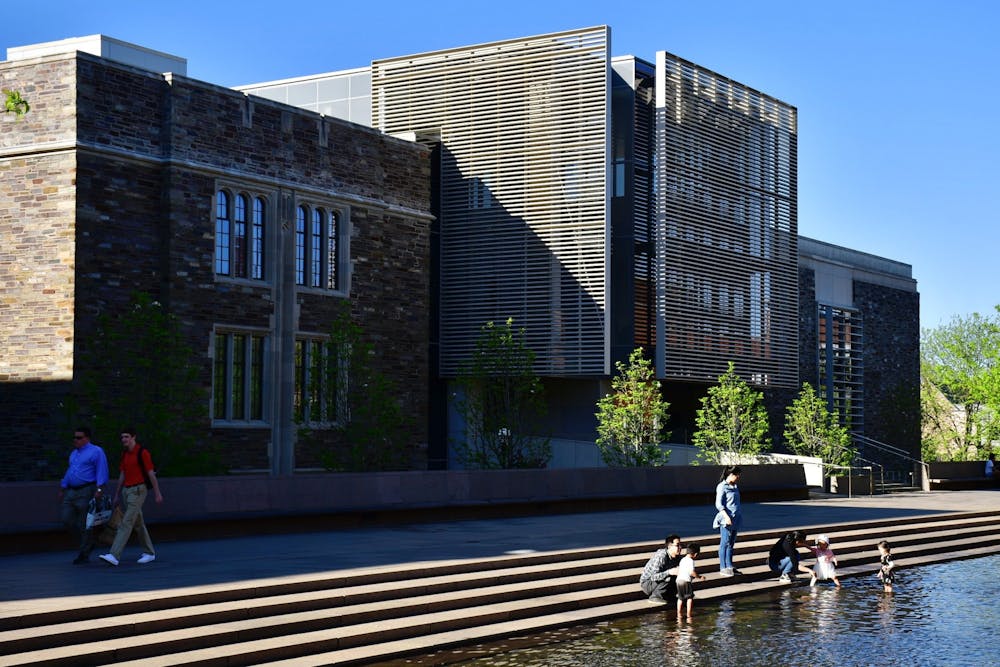Unable to find flights out of Morocco, Michaela Daniel ’21 and Aisha Tahir ’21 spent several days in March thinking they would be stranded abroad, as the COVID-19 pandemic rapidly accelerated. While other study abroad students managed to return home with an overpriced plane ticket and a frantic day of packing, Daniel and Tahir — by virtue of Morocco’s fully closed borders — believed such options would not be available to them.
After a tumultuous week of constantly changing plans and unexpected government assistance, the two returned safely to the U.S. on March 20.
On March 14, the University instructed all students studying abroad to return to their permanent residences as soon as possible, following travel restrictions issued by the federal government and the World Health Organization’s declaration that COVID-19 constituted a global pandemic. Like many University students spread across the globe, Daniel — studying abroad alongside Tahir in Rabat, Morocco — began searching for flights home, which in her case, was Atlanta, Ga.
In the meantime, she continued studying at AMIDEAST, the Arabic and French program through which she was studying abroad. AMIDEAST bills itself online as “a leading American nonprofit organization engaged in international education, training, and development activities in the Middle East and North Africa.”
Daniel, a Near Eastern Studies concentrator, booked a flight out of Casablanca on March 15, expecting to depart on March 20 and land in Washington D.C. Just a few hours later, the Moroccan government grounded all international flights in or out of the country. “Hundreds” of Americans were stuck in Morocco, according to The Washington Post.
“It was not necessarily an entire surprise because [earlier] the Moroccan government suspended flights from around 20 countries,” Daniel said.
While in Morocco, Daniel felt supported by the University and was heartened by administrators’ efforts and regular check-ins, believing that University staff were working hard to help her return.
“Princeton is trying to do everything in its power to bring us home,” she said while still in Morocco. “They keep checking in on us to make sure that we are … okay … that [we] have everything [we] need, that [we] feel secure. That’s really all they can do right now.”
Daniel’s father, on the other hand, was unsatisfied with the University’s response. Reginald Daniel was frustrated by the school’s actions and believed students studying abroad should have been recalled at an earlier date.
“The University has been very lax and very slow to communicate what they are doing for students that are on their international abroad programs in terms of bringing them back,” he said on March 15. “You allow students to stay … [They] were told to kind of sit down and wait. This is unacceptable. This is poor crisis management planning on the University’s part, and this is my biggest problem.”
Tahir, an African American Studies concentrator from Virginia, was also unable to return to the U.S. before the restrictions entered into effect. According to Deputy University Spokesperson Mike Hotchkiss, the University sought to rectify the situation as quickly as possible.
Tahir did not respond to a request for comment from The Daily Princetonian.

Hotchkiss stated that the University recognized the distressing nature of the situation in Morocco and worked “with International SOS, the University’s international emergency assistance provider, to help them return home as soon as possible.”
Daniel and Tahir finally left Morocco for London on March 19 aboard a charter flight with students from Brown University and the University of Pennsylvania. Upon landing in the United Kingdom, the group flew to Newark, arriving on the evening of March 20.
Daniel and Tahir’s program of study at AMIDEAST encountered technological difficulties in moving its courses online, causing a gap in their education. On March 30, following roughly two weeks without instruction, the program began online classes.
Since returning to the United States, Daniel has found herself in good spirits.
“I’m just happy to be back and start navigating this ‘new normal’ with my friends and especially my family,” she wrote in a statement to the ‘Prince.’
As it would turn out, Daniel’s disposition at home hasn’t differed much from her mood in Morocco.
“Aisha and I feel incredibly safe here, incredibly cared for,” she said while still in Morocco. “We’ve been kind of hanging out … I have said goodbye to several students in the past few days. Morocco is a beautiful country — we’ve gone on walks, I read some books. It’s been a time.”








